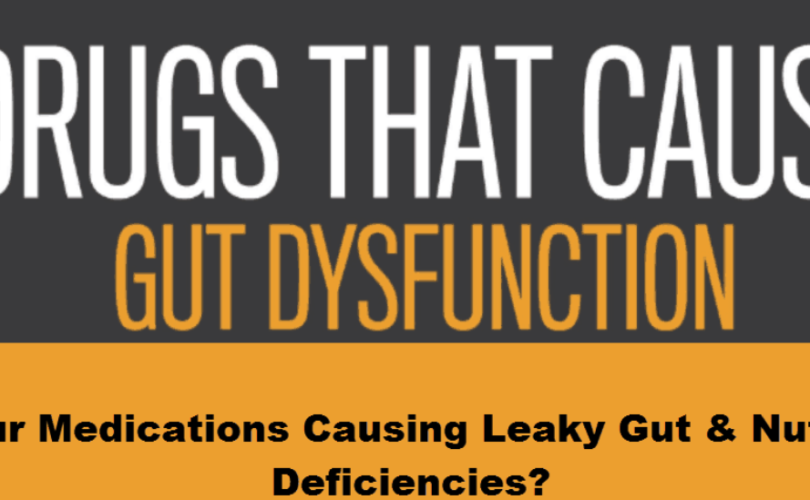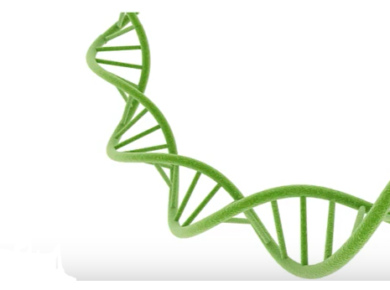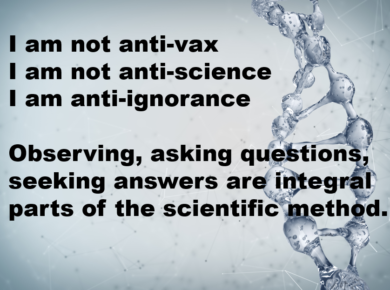You may have heard that the gut is the second brain. The reason is obvious:
The second brain contains some 100 million neurons, more than in either the spinal cord or the peripheral nervous system. This multitude of neurons in the enteric nervous system enables us to “feel” the inner world of our gut and its contents.
In other words, the gut directly regulates the function of the brain, how we feel. It is the root cause of brain issues like depression or anxiety.
Earlier this year, Nature, one of the most prestigious scientific journals in the world, published a groundbreaking study on the interaction between pharmaceutical drugs and the human microbiome.
In a lab, forty bacterial strains commonly found in the gut were tested against 1,079 pharmaceutical drugs to see which drugs inhibited the growth of gut bacteria.
Drugs that stopped the growth of at least one bacterial strain were considered a ‘hit’ and likely to have antibiotic-like side effects in humans. The drugs tested were divided up into three groups based on their cellular targets:
1. Antibiotic Drugs (Targets bacteria):
As expected, the majority of the antibiotics tested inhibited growth of at least one strain of gut bacteria.
2. Anti-infective Drugs (Targets parasites, protozoa, fungi, and viruses):
53% of these drugs inhibited growth of at least one strain of bacteria. This is somewhat surprising, as these drugs are not designed to attack bacteria, yet more than half did.
3. Human Targeted Drugs (Although this name is confusing, it simply means any drug that is designed to affect a human as opposed to a microbe):
24% of these drugs had antibiotic-like side effects. This included drugs from ALL major classes. Examples include: antipsychotics, calcium channel blockers, antihistamines, proton pump inhibitors, thyroid medications, blood thinners, NSAIDs and anti-diabetics like metformin.
This data is groundbreaking. It suggests that many pharmaceutical drugs, not just antibiotics, are able to modulate the microbiome.
For example, antipsychotic drugs work, theoretically, by acting on dopamine and serotonin receptors in the human brain. These receptors are not found in bacteria. Therefore, they should have no effect on the bacteria in the gut. However, that is not what this study found.
As mentioned above, 24% of drugs designed for human cells, also negatively affected gut bacteria. This suggests that every time you take an antipsychotic, an NSAID, metformin, or many others, you are harming your microbiome.
Study Likely Underestimates Damage To Microbiome
The authors conclude that their study likely underestimates the impact of these drugs on the microbiome due to “the limited selection of bacterial strains screened.”3 As you can see from the study figure below, as they sampled more strains of bacteria, more human-targeted drugs were found to have antibiotic-like activity. This study only tested 40 strains, but there are actually hundreds in the human microbiome. Thus, the percentage of pharmaceutical drugs that impact the gut is likely much higher than 24%.
The study also found that the healthy bacteria were more likely to be harmed than the pathogenic strains.
Although this study was done in a lab, their data correlates well with other human studies. A large Flemish cohort study showed that patients taking hormones, antidepressants, immunosuppressants or anti-inflammatory drugs had significant changes in their microbiome.
Another study showed that patients on long-term metformin showed alterations in their gut bacteria.
Similar studies demonstrate the same results for atypical antipsychotics and proton pump inhibitors.
These studies and several others clearly demonstrate that medications (and environmental toxins in general) disrupt the delicate balance of our gut flora, leading to a variety of health issues.







